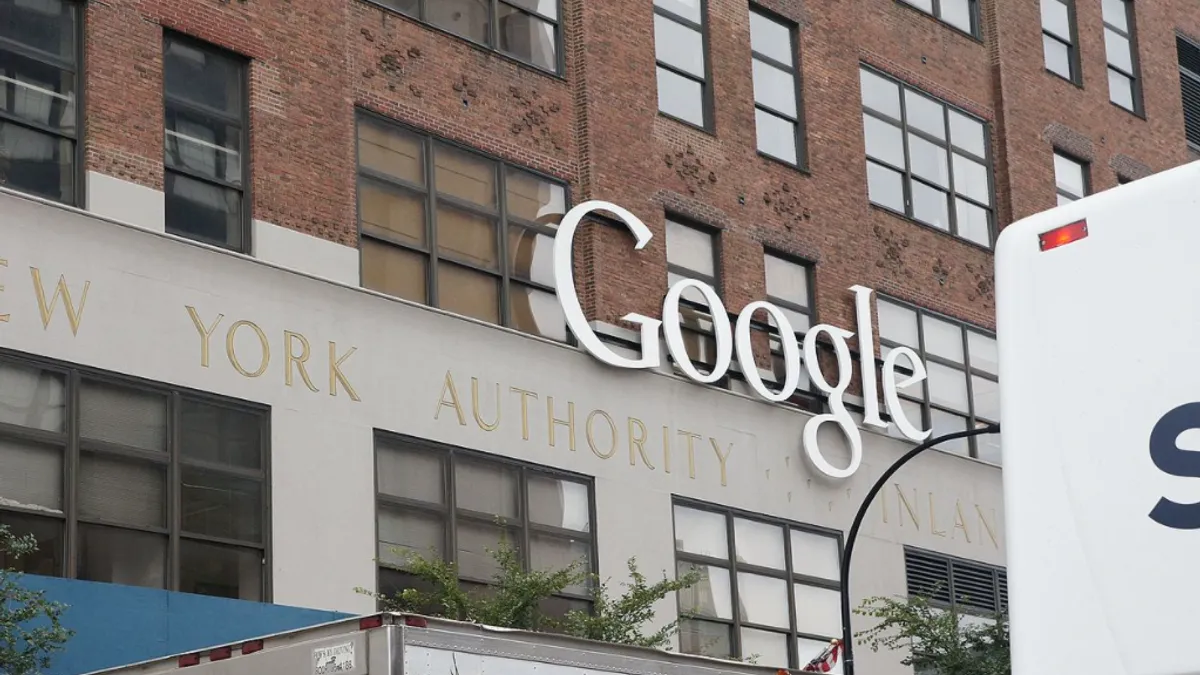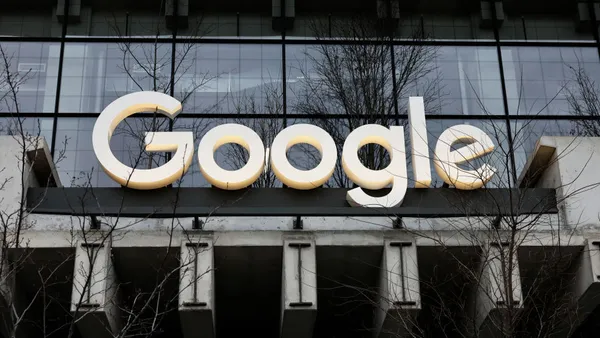Dive Brief:
- Google's revenue jumped to a record in the fourth quarter as marketers boosted their spending on paid search and YouTube advertising. Parent company Alphabet reported a 23% gain in revenue to $56.9 billion as advertising revenue rose 22% to $46.2 billion, partly driven by a 46% jump to $6.89 billion for YouTube, per its quarterly report.
- YouTube now reaches more 18- to 49-year-olds than all linear TV networks combined, while 70% of its viewers said they bought a brand after seeing it on YouTube, Philipp Schindler, senior vice president at chief business officer at Alphabet, said in a conference call with analysts. Direct response advertising on YouTube continued to grow, while brand advertising maintained a recovery that started in Q3, he said.
- The gains marked the second straight quarter of recovery from a Q2 slump, when Google reported the first ad sales decline in its 26-year history as the pandemic dampened ad spending. Alphabet's profit surged 69% to $15.7 billion, despite a $1.2 billion loss for its cloud services unit, whose results were broken out for the first time.
Dive Insight:
Google's strong results indicate that marketers ramped up their ad spending in Q4 to reach consumers as they shopped for holiday gifts. YouTube remained a bright spot for the company with its highest growth rate for the year as marketers sought to reach its growing audience. Alphabet CEO Sundar Pichai touted the company's ongoing investment in YouTube to build on two key growth trends: live video and short-form media. The investment acknowledges the growing popularity of platforms like Amazon-owned Twitch in livestreaming and social video app TikTok in short-form videos.
"More than half a million channels livestreamed on YouTube for the first time in 2020, from artists performing in their living rooms to churches moving their services online," Pichai said. "Videos in our new Shorts player are receiving 3.5 billion daily views. We are looking forward to expanding Shorts to more countries this year."
In addition to YouTube's ad growth, Google also saw a 23% gain to $7.4 billion in ad revenue for Google Network Members, which consist of publishers that sell ad inventory through the company, and a 17% rise to $31.9 billion for paid search ads.
"All three of Google's main lines of ad business outperformed our forecast, including YouTube," Nicole Perrin, an eMarketer analyst for Insider Intelligence, said in emailed statements to Marketing Dive. "The strength across all three areas suggests that advertisers are not only turning to digital video ads as a flexible and addressable way to reach consumers with sight, sound, and motion, but also to low-funnel performance ads as shoppers continue to rely on e-commerce during the pandemic."
Google's 22% growth in ad revenue didn't keep pace with newer entrants to the digital advertising market that also recently reported Q4 results. Facebook said its ad revenue surged 31% from the prior year to $27.2 billion as marketers sought to reach consumers who have increased their social media usage during the pandemic. With more people shopping online, Amazon said revenue for its business segment that includes ad sales jumped 64% from a year earlier to nearly $8 billion.
While Facebook CEO Mark Zuckerberg warned that Apple's planned privacy changes may negatively affect its ad revenue, Alphabet didn't mention Apple in its presentations to investors. Alphabet's Schindler briefly discussed the company's stance on privacy amid its plans to phase out support for third-party cookies in the Chrome browser by next year. Alphabet is developing an alternative to the audience tracking technology as part of its Privacy Sandbox initiative.
"We really believe Privacy Sandbox is the best path forward, and we remain very committed to our collaboration with the ads community on privacy-preserving open standard mechanisms that can, what we call, sustain a healthy and ad-supported web," Schindler said.
Google also faces multiple antitrust lawsuits, including one from 10 state attorneys general that accused the company of anticompetitive business practices in online advertising. Google last month refuted those claims in a detailed blog post by Adam Cohen, the company's director of economic policy.














